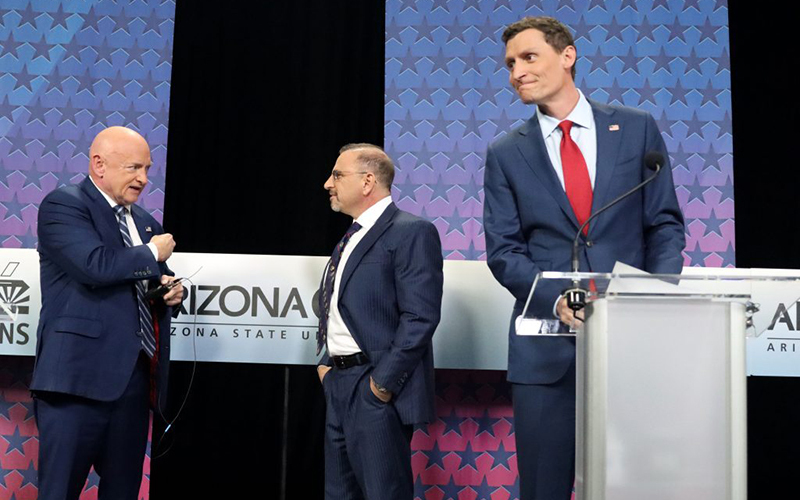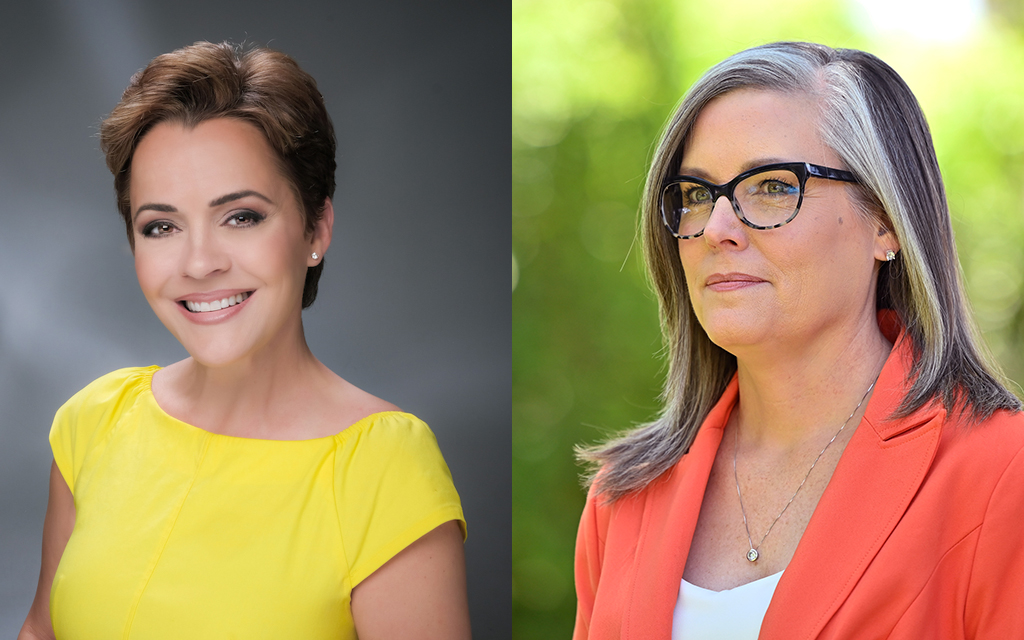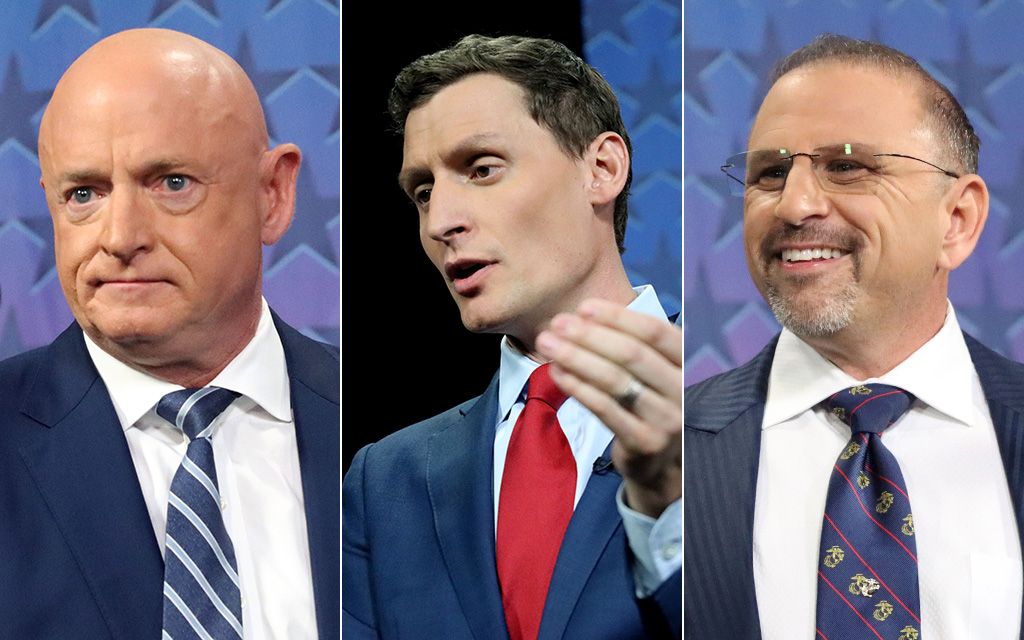WASHINGTON – Debates, or lack of them, were the focus of a substantial amount of, well, debate in Arizona’s elections this fall. But do they really matter anymore?
Depends on who you ask.
“The debate is really not a method that helps people learn very much about issues,” said Lara Schwartz, the director of American University’s Project on Civil Discourse. “It’s not really designed to help people understand one another’s perspective. It’s a competition.”
But Clean Elections Commission voter education director Gina Roberts is not convinced.
“Because what other opportunities do they get, where they get to stand on the same stage with another candidate where it is actually, in this particular event, reaching voters?” Roberts asked.
Not all campaigns see the value of that opportunity, however. In this year’s elections, Democratic gubernatorial nominee Katie Hobbs took significant heat for refusing to debate Republican nominee Kari Lake, an election denier who Hobbs said would just use the stage to spread disinformation.
But Hobbs was far from the only candidate to balk. Others included GOP challenger Eli Crane, who declined to debate Rep. Tom O’Halleran, D-Sedona, in District 2 and Republican Juan Ciscomani who is running against Democrat Kirsten Engel for an open seat in the 6th District in southeastern Arizona.
And it’s not just Arizona. A survey by the Brookings Institute found that while candidates in the five most competitive Senate races in 2010 participated in a total of 17 debates that year, just six had been scheduled for the 2022 election as of Oct. 10.
Paul Bentz, a senior vice president of Arizona-based HighGround Strategies, said “it’s nothing new” for candidates on both sides of the aisle to avoid public debates. He said high-profile candidates are often encouraged to decline debates or to limit their number.
“Lots of individuals have skipped debates over the years,” Bentz said. Particularly for front-runners, there is a concern that debate missteps would “give credibility to your opponent, and let them level charges against you or let them attack you, let them criticize you.”
Bentz said most consultants agree that “when your candidate is in the lead, that there’s not really a great motivation to debate … because there isn’t really much to gain from it when you’re the front runner.”
Despite the perception that debates are on the decline, Roberts said participation in Arizona this year was fairly typical. She acknowledged the emphasis on candidates nationwide declining to debate, but said “that’s not the case here, overall.”
“We do have a few where we ended up canceling those districts, but it’s not very many,” Roberts said last week. “So I would say, in regards to our debates here in Arizona, I feel like they really are on track with performance and candidate participation, as they typically have been.”
Journalist Len Downie Jr. thinks debates still have value, but he agrees that campaigns may not see them as being as useful as they were in the past.
“From a news media’s perspective, I think debates are useful. I wish they would continue, but I question whether or not they’re going to be able to continue,” said Downie, the Weil Family Professor of Journalism at Arizona State University’s Cronkite School.
Downie, the longtime executive editor of the Washington Post, said one reason debates may be declining is because the audiences are not as big as they used to be and “there are candidates who are using debates to spread misinformation.”
That was echoed by Schwartz, who noted the “distance between some candidates and truth.” It’s hard to have a debate like those in the past, she said, when “we don’t have an agreed upon truth.”
That extends to the audience as well as the candidates, said Frank Gonzalez, an assistant professor at the University of Arizona.
“The debate is not going to help things here. People already have their mindset. It’s a super-polarized political environment,” Gonzalez said. In that environment, he said, it is not surprising that to voters it is “sort of like, ‘Let’s drop the formalities and stop pretending that rational discourse is relevant here.'”
Gonzalez, a political psychologist, said years of research shows that debates potentially affect only a small sliver of voters’ decision making.
“There is some evidence that they influence opinion in primary elections, and some evidence that they might even influence opinions in general elections,” he said. “One of the things that people think it primarily affects is agenda-setting, right?”
And, Downie noted, campaigns are much more adept at taking their message directly to voters without having to go through a debate.
“Increasing numbers of candidates are refusing to talk to the press, are only talking to members of the press whose news organizations they think support them,” Downie said. “They don’t need to be responsive to news organizations because there are so many other ways to reach voters … where they get to have their particular message, unfiltered and unquestioned.”
Schwartz agreed that candidates today “have a great deal more direct communication, by way of texts, emails, phone calls, canvassing than … before.” While she said a debate can “definitely enable you to see how two people can hold their own in dealing with one another … they’re not exercises that I would call great exercises for learning things.”
Bentz said most campaigns do not need debates as “one of the ways to really get your message out and get attention and to draw clear distinctions. But now, it’s much more likely to happen outside the halls of a debate.”
But Roberts is not about to concede. She said there is still value in bringing candidates together in a forum where voters can get a read on them.
“At the end of the day, they’re a worthwhile tool for both the voters and the candidates, because the goal is connecting them together,” she said.



